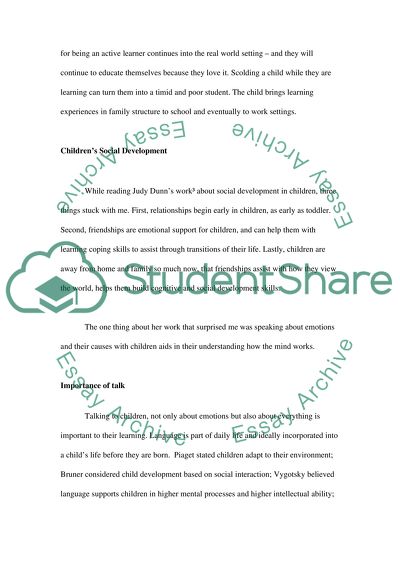Cite this document
(“Child Development and Learning Book Report/Review”, n.d.)
Retrieved from https://studentshare.org/psychology/1505585-child-development-and-learning
Retrieved from https://studentshare.org/psychology/1505585-child-development-and-learning
(Child Development and Learning Book Report/Review)
https://studentshare.org/psychology/1505585-child-development-and-learning.
https://studentshare.org/psychology/1505585-child-development-and-learning.
“Child Development and Learning Book Report/Review”, n.d. https://studentshare.org/psychology/1505585-child-development-and-learning.


